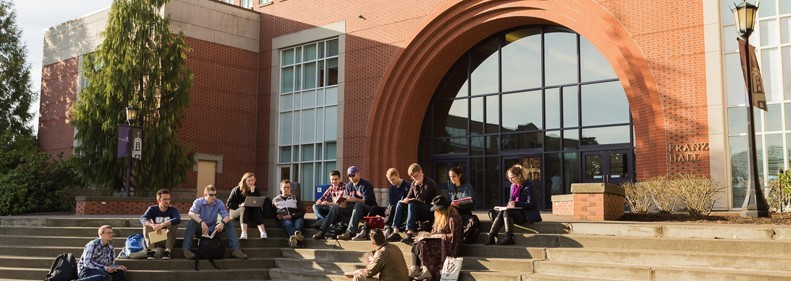
In addition to talking to other University of Portland psychological sciences students and faculty members, The American Psychological Association (APA) has an useful brochure with information for students considering psychology. Access the whole brochure. We have also excerpted relevant information on our web-site for easy access. We hope you find the information useful, and would encourage you to seriously consider our major.
Why people do the things they do is an age-old question. However, psychology—the science concerned with behavior, both human and nonhuman animals—is only about 125 years old. Despite its youth, it is a broad discipline, essentially spanning subject matter from biology to sociology. Biology studies the structures and functions of living organisms. Sociology examines how groups function in society. Psychologists study the intersection of two critical relationships: one between brain function and behavior, and one between the environment and behavior. As scientists, psychologists follow scientific methods, using careful observation, experimentation, and analysis. But psychologists also need to be creative in the way they apply scientific findings.
Psychologists are frequently innovators, evolving new approaches from established knowledge to meet changing needs of people and societies. They develop theories and test them through their research. As this research yields new information, these findings become part of the body of knowledge that practitioners call on in their work with clients and patients. Psychology is a tremendously varied field. Psychologists conduct both basic and applied research, serve as consultants to communities and organizations, diagnose and treat people, and teach future psychologists and other types of students. They test intelligence and personality. Many psychologists work as health care providers. They assess behavioral and mental function and well-being, stepping in to help where appropriate. They study how human beings relate to each other and also to machines, and they work to improve these relationships. And with America undergoing large changes in its population makeup, psychologists bring important knowledge and skills to understanding diverse cultures.
From page 1 in Psychology: Scientific Problem Solvers--Careers for the Twenty First Century, published by the American Psychological Association, retrieved August, 2006.